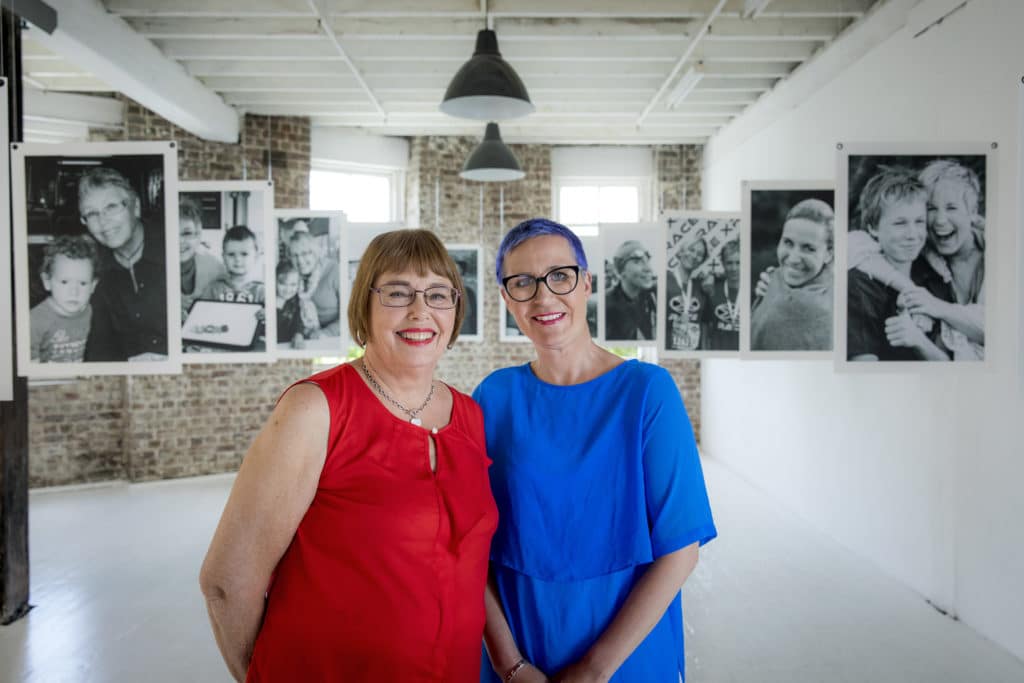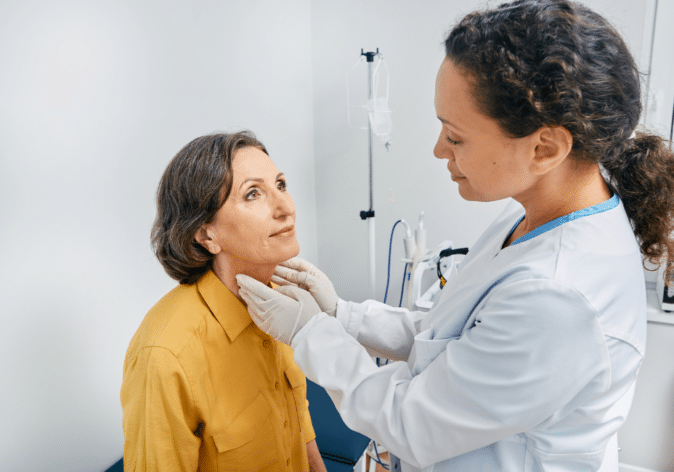Dawn’s Participation In A Clinical Trial Has Saved Lives And Helped Women Like Nic
Participating in a clinical trial has many benefits. You could get access to a new treatment before it is routinely available, you are helping to advance medical knowledge and may help future generations, and you are carefully monitored and cared for by a team of health professionals.
It was the extra attention that Dawn Cotterell is most thankful for. 69-year-old Dawn lost her mother to breast cancer in 1971. It was this loss that led her to volunteer for the IBIS-1 trial, a breast cancer prevention trial. She was in the follow-up stage of the trial, when her breast cancer was discovered.
“It was a total surprise,” Dawn said. “I thought ‘this is not supposed to happen, I’ve been on a trial. But because I was on the trial, and I was having the mammograms, it was probably a more in-depth mammogram than what I’d have got if I had just gone to BreastScreen” she said. “I was devastated, as you would be.”
“When they broke the code, because when they found out I had cancer, they had a look, I was actually on the placebo, but the cancer I had of course was not hormone receptive, so even if I had been on tamoxifen, it wouldn’t have done any good anyway,” said Dawn.
Dawn was diagnosed with HER2 positive breast cancer, a particularly aggressive form of the disease affecting approximately 20 to 30 per cent of women with breast cancer. Dawn started treatment soon after her diagnosis.
Dawn’s Experience On The HERA Clinical Trial
“A mastectomy two weeks later, and then a month later four lots of chemo and then they said, ‘well we’ve got a clinical trial going for Herceptin, do you want to go on the trial’, and I said ‘yeah, I haven’t got anything to lose’, because the cancer was one of these ones where they really didn’t have anything else.”
“I thought, well may as well go for it, it really can’t hurt, and it might do some good, hopefully for me, but if not then for somebody else.”
The trial Dawn was placed on was the HERA clinical trial. It was a ground-breaking study for women with HER2-positive breast cancer, which showed the drug trastuzumab or Herceptin, significantly reduced the risk of breast cancer returning. HERA was conducted in Australia and New Zealand by Breast Cancer Trials.
The study changed practice around the world.
Listen to the podcast
Breast Cancer advocate Nic and HERA trial participant Dawn discuss their breast cancer experiences.
How Nic Benefited From The HERA Trial
45-year-old Nic Russell from Auckland, New Zealand was one of those women to benefit from Herceptin following the HERA trial. However, it wasn’t affordable or easy to access when she was diagnosed. Nic was diagnosed with HER2 positive hormone receptive stage three breast cancer in July 2005. But when she was diagnosed, she said she couldn’t focus on herself.
“At the time, it was overwhelming because my two-and-a-half-year-old daughter was also going through cancer at the same time.”
“She had a bone cancer and she’d been left paralysed and I was a single mum at the time and my world literally came crashing down at that point,” said Nic.
“I didn’t think life could throw such an awful sword at the time, but it did. I think because she was so critically ill, the focus wasn’t so much on myself, but on her and I really wanted to be alive for her because I thought ‘Who’s going to care for her if I’m not here’ and that was the fear that ran through me as a mum.”
“All we want is to be here to watch our children grown up and give them a future, because we don’t want to deny them a future without us and it was a real fear,” said Nic.
Nic’s oncologist recommended Herceptin as part of her treatment, if she could afford it. At the time in New Zealand, Nic said Herceptin could cost between $80,000-$100,000. It wasn’t something she could afford.
It was also at this time that Nic’s daughter Mackenzie tragically passed away. But after the local paper shared her story, the community rallied.
“Because we’d lost Mackenzie and here’s me fighting for my life needing access to a drug. So that’s how the community rallied and they did sausage sizzles, they did mega garage sales and things like that and I’m forever thankful for them.”
But Nic said she knew others didn’t have the same support.
“I didn’t want another woman to go through what I went through, so I joined a group of dedicated women in New Zealand who were lobbying hard for Herceptin. I joined their efforts and became the spokesperson for the campaign and it took us three years, but we eventually got it funded in New Zealand for other women, so any woman who is now diagnosed with HER2 positive breast cancer, thanks to the HERA trial, get Herceptin funded and we’ve given them a future because of it.”
While so many New Zealand woman owe Nic their gratitude for her fight to fund Herceptin, Nic said she is most thankful for women like Dawn, who put their hand up first to participate in the HERA clinical trial.
A Game-Changing Trial
More than ten years after her treatment, she was able to meet Dawn to say thank you.
“It was very humbling, and inspirational,” said Nic. “Dawn’s selfless act of being part of a trial didn’t just give her life a chance at a brighter future, which has helped so many women, not just me, but many others and it changed the landscape of breast cancer treatment for HER2 positive breast cancer and also other treatments in oncology. It has been a game shifter.”
“It’s been very humbling to meet Dawn and I’m forever thankful for her for the gift of life she’s given me and many other people for being part of a clinical trial.”
Dawn says she is so thankful that Herceptin is now a part of standard care and no one needs to be faced with a bill of thousands to receive care like Nic.
“It was good, you’ve then got a contact and think ‘oh well, because I did this they’ve got it on the PBS’ and other people, because I used to read about people virtually selling their houses to buy it and that is so sad when you had to do that,” said Dawn.
Both Dawn and Nic strongly encourage women and men with breast cancer to consider participating in any clinical trial open to them.
“I would say to them, take the opportunity because they will get the gold standard of treatment of care as is currently available at the moment, and they will potentially get another agent in it,” said Nic. “You have nothing to lose but a lot to gain, not just for yourself personally but the whole, not just the breast cancer community, but the cancer community worldwide.”
Dawn echoed Nic’s comments encouraging clinical trial participation.
“Just do it. Just do it because you get the care, you get real support, probably better care than your standard and you are doing it for yourself, but you’re doing it for others as well,” said Dawn.
It’s been more than ten years since the women underwent treatment for the breast cancer. Thanks to the HERA trial and Herceptin, both women were able to get on with their lives, free from breast cancer.
“The only time I really get uptight about it is when I go for my yearly mammogram because that brings it home,” said Dawn. “But other than that, I get dressed, put the prosthesis into my bra, it’s just a part of life. Unless you hear about people that have cancer, friends and then you sort of think, gee, I am so lucky. So very lucky.”
Breast Cancer Trials is the largest, independent, oncology clinical trials research group in Australia and New Zealand. We are committed to finding new and better treatments and prevention strategies for breast cancer through clinical trials research.
Breast Cancer Trials currently has a number open clinical trials. You can find out more at breastcancertrials.org.au or speak with your doctor to see if there is an open clinical trial that’s right for you.



